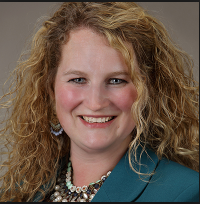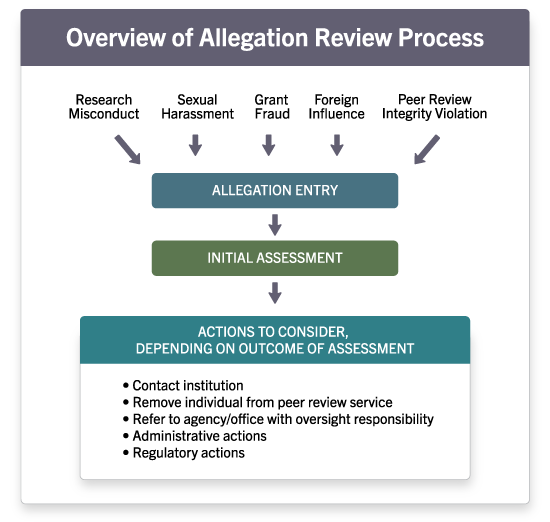2 Comments

As we have discussed frequently over the past couple of years (see related statements), if there are concerns that sexual harassment is affecting an NIH-funded project, we want to know about it.
At the NIH Advisory Council to the Director (ACD) meeting on June 12 (see video for presentation, starting at 1hr 37sec), we mentioned that we would be posting our process for handling notifications of sexual harassment at the institutions we fund. Publishing these standard operating procedures aligns with our commitment to transparency. It is also one of the recommendations of the ACD Working Group on Changing the Culture to End Sexual Harassment.
We have added a page on our Anti-Sexual Harassment: for NIH Awardee Organizations and Those Who Work There website that highlights the detailed steps NIH takes when we receive notification of a concern.

You will note that the flowcharts illustrate that NIH takes the same rigorous approach to addressing allegations involving sexual harassment as we do other integrity issues.
We look forward to implementing additional ACD recommendations soon.



Congratulations to the American experts at Federal Grants offices/divisions at NIH USA for addressing the emerging globally challenging “Scientific Grants-Female Sexual Harrassment and Misconduct” issue(s) in an elegant. dignified and mature fashion with a deserving applause to ethnically disparate Female-Workforce in the competitive scientific research arena!
My special applause to Dr. Wolinetz for meticulously and comprehensively addressing the scientific policy-based guidelines regarding misconduct, allegation and harrassment of my fellow scientific female contemporaries as well as senior-level experts in the ever-expanding research world with stringent timeline-based priorities and deadlines for developing, implementing, reporting and publishing NIH-sponsored innovative research; the sexual harrassment issue, including perceived marital bias especially amongst foreign scientists with independent unmarried statuses, prevalent at leading centers of advanced research globally, including USA and my homecountry India in Asia Pacific region, is pften overlooked and sidelined without timely administrative actions against the parent organization wherein the NIH Grantee(s) may be engaged in research/teaching, and therefore, a rigorous scientific workforce with the experts at the regulatory/oversight/grants management offices/divisions needs to be in action for stringently and effectively managing the sexual harrassment-related challenges with necessary compliance disciplinary actions for ethically utilizing the federal resources with mutual respect towards team-members in a healthy scientific environment irrespective of marital/gender: female bias in terms of senior authorships/first authorships in publications and grants.
Overall, a though-provoking snapshot……..once again, an applause to the female scientific workforce globally for continued contributions in the highly competitive science and technology/biomedical/translational/public health research areas!
Thank you.
Dr. Saumya Pandey, Ph.D.
Lucknow, India
Dr Lauer
Who or what agency (besides IG) is the contact when the General Public perception is that the NIH does a poor job with ALL issues of PI-integrity, including discrimination?
Are you acoountable?